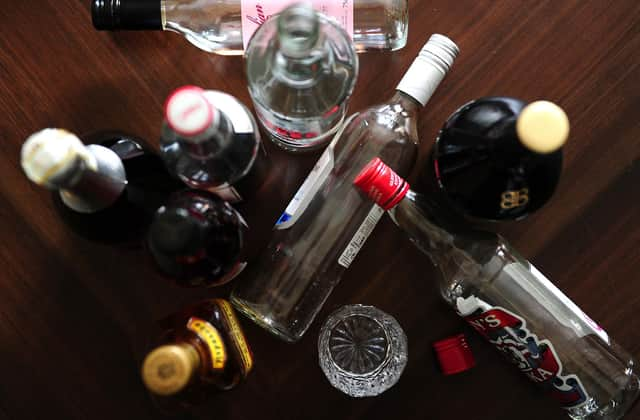Sheffield University study shows lockdown led to more home drinking


The study also found that in Scotland there was an increase in solitary drinking, although researchers say this could be explained by a higher proportion of people living alone there than in England.
The research, led by the University of Glasgow in collaboration with researchers at the University of Sheffield, measured the impact of Covid-19 restrictions in 2020 on drinking habits, using data on almost 300,000 adult drinkers in Scotland and England.
Advertisement
Hide AdAdvertisement
Hide AdIt found that there was no statistical difference in the total number of alcohol units consumed each week during different periods of the first year of the pandemic.
However researchers found that lockdowns appeared to be linked to a shift in habits to at-home, late evening drinking.
Experts said it will be important to monitor people's drinking behaviour to see whether they keep the habits acquired during lockdown.
Dr Iain Hardie, of the University of Glasgow MRC/CSO Social and Public Health Sciences Unit and lead author of the study, said: "Going forward it remains unclear what the long-term consequences will be of the changes in alcohol consumption in 2020.
Advertisement
Hide AdAdvertisement
Hide Ad"With hospitality premises back operating at closer to full capacity it's likely that alcohol consumption in these venues will move closer to pre-pandemic levels, although they could potentially decline again in response to new variants if restrictions are reintroduced or people are afraid of indoor spaces.
"However, the increase in home drinking in 2020 is a concern. We know from other studies that alcohol-related harm has risen during the pandemic. The increase in home drinking is likely to have contributed to this.”
The research team studied 41,500 adult drinkers in Scotland and more than 250,000 in England, focusing on the original March 2020 lockdown, the easing of restrictions in July 2020 and the onset of further restrictions in September 2020 until December 2020.
The study suggests consumption of shop-bought alcohol increased following the March 2020 lockdown and remained persistently higher than previous years throughout the rest of that year, even in the period when lockdown restrictions were eased.
Advertisement
Hide AdAdvertisement
Hide AdMeanwhile alcohol consumption in hospitality premises decreased following the March 2020 lockdown and remained lower than previous years throughout the remainder of 2020.
The researchers believe this is most likely to be explained by three reasons, one being that even when on-trade premises reopened they were operating at reduced capacity.
Another is that some venues, such as nightclubs, remained closed, while some people will have continued to stay away from hospitality settings because they were worried about catching Covid-19.
Dr Abigail Stevely, from the University of Sheffield's Alcohol Research Group and co-author of the study, said: "Despite some concerns that people might drink more in the daytime, we actually found that there was a shift towards people starting drinking later in the evening during lockdown restrictions.
Advertisement
Hide AdAdvertisement
Hide Ad"This perhaps reflects changes in people's routines and the absence of opportunities for daytime socialising such as going to the pub with colleagues after work.
"Although we found that lockdown restrictions did not change overall levels of alcohol consumption, there is evidence from other studies that heavier drinkers may have increased their consumption."
The research is published in the journal Addiction.